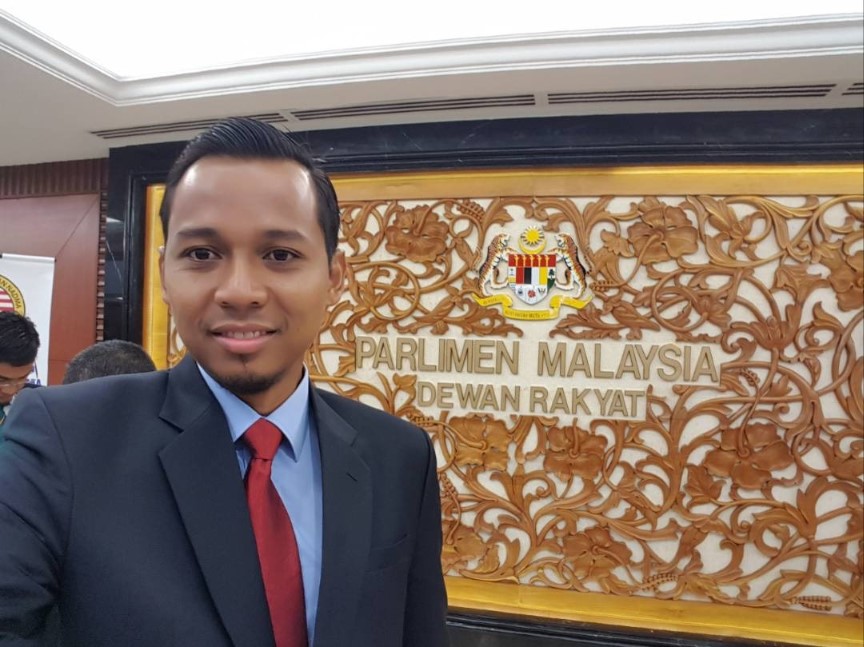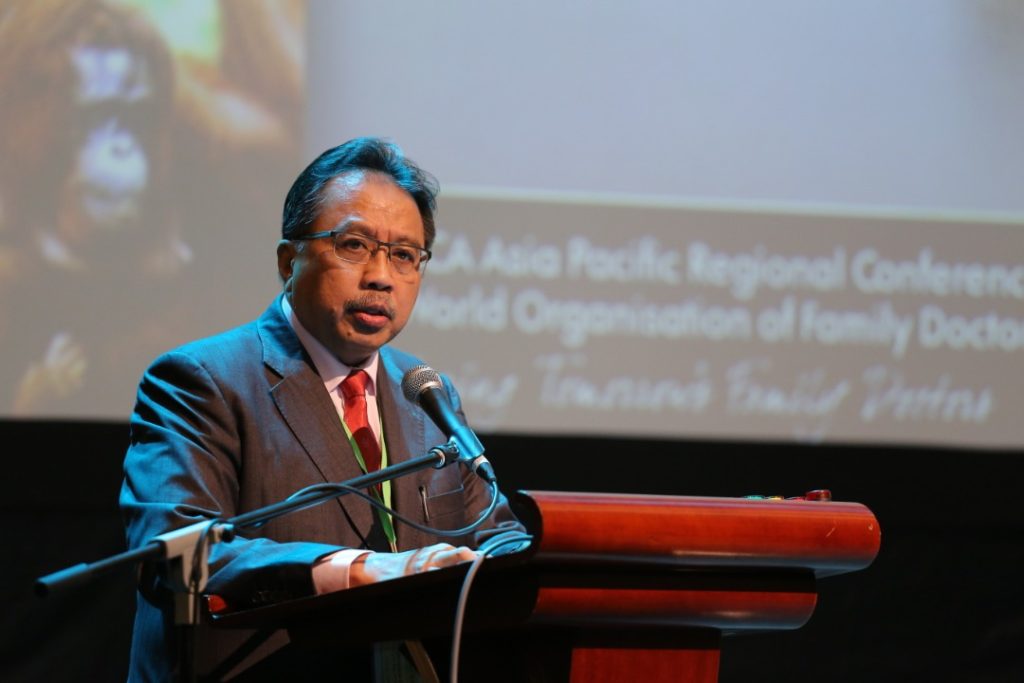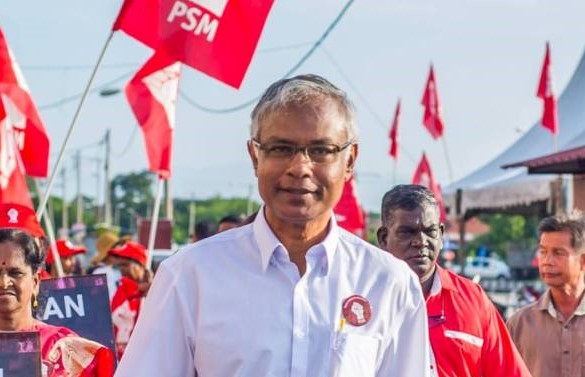KUALA LUMPUR, August 30 — Doctors have called for primary care to be strengthened and for general practitioners (GPs) to receive fair remuneration, as Malaysia celebrates her 62nd year of independence tomorrow on Merdeka.
Other stakeholders also demand for bigger health allocations in the upcoming Budget 2020, even up to RM36 billion. The Health Ministry received RM29 billion in the previous government budget.
Pharmaceutical suppliers urged the government to hold more sincere dialogues with the private sector so that policies are made upon real consensus with stakeholders.
Here is what health care stakeholders polled by CodeBlue want in conjunction with Merdeka:
Dr Jeyakumar Devaraj
Parti Sosialis Malaysia (PSM) chairman
Health care is more than just another service that is provided to people. It is a marker as well as a determinant of the level of social solidarity in a nation. It is part of the glue that holds society together.
My Merdeka wish is that the health budget for 2020 will be RM36 billion (i.e 20 per cent higher than business-as-usual trend). This will help us build a more harmonious society.

Dr Muhamad Hazizi Hasani
Malaysian Integrated Medical Professionals Association (MIMPA) president
What health policies should the government focus on as we reach our 62nd year of independence?
Policies that can reduce the gap between the private and public health care.
Preventive medicine. Non-communicable diseases (NCDs) such as heart diseases, diabetes are plaguing the country. Preventive medicine is the key in tackling these problems.
Strengthen primary healthcare and public health.
Moving forward with health digitalisation, in terms of database and predictive AI to anticipate outbreaks.
What do you think the government can do better in terms of health care?
Fulfill the most essential budget needed by the MOH (Ministry of Health). Most of the time, the health sector would get around 50 per cent of the requested funds.
Improving universal health coverage. Provide/ subsidise insurance or educate the masses about insurance/ takaful so that every citizen can access quality healthcare, and the government hospital can truly attend to the more needy.
What kind of health allocations are you hoping for in the upcoming Budget 2020?
More health allocation for drugs in government hospitals.
Allocations for media penetration to promote healthy lifestyle, and creative, attractive, impacting and meaningful content.
Dr Choe Tong Seng
Malaysian Association of Pharmaceutical Suppliers (MAPS) executive director

What health policies should the government focus on as we reach our 62nd year of independence?
It is time that the country formulates a “National Health Policy” that is reviewed every three years to provide focus and drive the development for the future health care needs, services and structures etc to meet the changing demographics, health care deliveries, disease burden, new medical technologies, resource allocation in manpower and financials etc.
This is also to facilitate in synchronising and/or integrate “public and private health care” development and deliveries for the future, for example health care financing, better management of patient medicine adherence and safety etc.
As at present, different health care sub sector/ stakeholder has its own priority in the development of health care needs. Further, with each change of the Minister of Health, health care priorities often do change as well.
What do you think the government can do better in terms of health care?
1) Mutual respect and transparency for public-private partnership stakeholders’ meetings/ dialogues.
There is a suspicion by the private sector that often times the meetings/ dialogues are for endorsing the government programmes, rather than a meeting/ dialogue where consensus are agreed upon and then implemented.
Dr Choe Tong Seng, Malaysian Association of Pharmaceutical Suppliers (MAPS) executive director
2) Regulatory impact analysis should be carried out for any intended policy that may have a long-term impact for the rakyat and the industry, for example the price control and dispensing separation for medicines. Any decision made by the ministry should be objective and with full transparency, with the rakyat and the national interest in mind.
What kind of health allocations are you hoping for in the upcoming Budget 2020?
The government must allocate adequate financial funding for the health care sector. Over the last few years, only about 4.5 per cent of the GDP is contributed towards health care despite the growth of population, ageing population, changing disease burden, growing NCDs, cost of medicines and new medical technology etc.
Instead of “just looking at cutting cost” for short-term solutions, where the delivery of services of the health care to the rakyat could suffer and deteriorate, the government should, in addition, consider allocating 6 to 7 per cent of the GDP, as recommended by the WHO (World Health Organization) for developing nations, towards the health care sector. A healthy nation is the anchor towards achieving economic growth and stability.

Dr Mohammad Husni Jamal
Academy of Family Physicians of Malaysia (AFPM) president
What health policies should the government focus on as we reach our 62nd year of independence?
In many countries, health systems’ restructuring or reengineering has recognised the importance of a primary care-driven health system, with vocationally-trained specialist general practitioners / primary care doctors / family physicians being in the forefront of the system.
I believe we should change the mindset of the citizenry. The health status of a country should be judged by the number of primary care clinics — both public community clinics and private GP clinics — with good facilities and vocationally-trained qualified family physicians, and easily accessible to the general public; and not by the number of hospitals built, something to that effect.
Having said that, and currently being involved in some of the primary care reform committees, I must credit the current Minister of Health YB Datuk Seri Dr Hj Dzulkefly Ahmad for having much of that vision and laying the blueprint. What is needed now is the strong political will to implement it fully.
The other aspect to focus on relates to patient safety and I believe there is already a move to this effect, involving the Ministry of Health in collaboration with medical societies, including the Academy of Family Physicians of Malaysia, as well as other related NGOs.
What do you think the government can do better in terms of health care?
Having been in private family practice as its principal partner for 25 years prior to joining academia to pursue my interest in health economics relating to primary care, I believe that one important sector that the government needs to focus on are the GPs. Even whilst in active family practice I was an active advocate of GP issues since the late 90s — which we highlighted to the government. Although there had been some improvements, I still feel that the GPs deserve more attention and support.
There are an estimated 6,650 GPs in the country — certainly an important HR asset for primary care. Historically, the GPs were the earliest ones to have provided medical care in the country, even before pre-Merdeka days. Unfortunately as the country progresses, their roles have been sidelined in many aspects.
Hence:
1) Public-private partnerships in primary care needs to be implemented soonest possible to harness the resources that the GPs can offer with their counterparts in the public community clinics. Management of NCDs,and the whole spectrum of health education and disease prevention activities are areas that can be focused on, instead of just curative aspects of care.
The way forward is a primary care team approach to serve the local communities – with the primary care doctors leading teams comprising of secondary specialists, allied health nursing personnel and social workers too.
2) Recently, the GPs had voiced their concerns as regards to their fee schedules, which requires a more realistic review. Unfortunately, the response from the authorities was far short of satisfactory. It is regrettable that the general community misinterprets this as an act of greed, which is far from the truth.
Reflecting on my experiences 25 years ago and the conditions my GP colleagues are going through now, my GP colleagues truly deserve much more.
Dr Mohammad Husni Jamal, Academy of Family Physicians of Malaysia (AFPM) president
3) I have a special interest in the roles of GPs in the Peka B40 scheme. My current observation is that the GPs are only playing a superficial role, whereas a more comprehensive and meaningful participation by GPs can lead to better outcomes.
What kind of health allocations are you hoping for in the upcoming Budget 2020?
The Academy of Family Physicians of Malaysia (AFPM) had been recognised by the government as a provider of a parallel pathway in the training of Family Medicine Specialists. To this effect we have produced more than 400 specialists and an estimated 1,000 primary care doctors, both from the Ministry of Health and the private GPs, are undergoing the programme.
However Malaysia needs more family medicine specialists. If we target a ratio of 1 family doctor: 2000 population, then we need to produce 15,000 family physicians. In order to do this, the following measures need to be done:
1) Financial support for the doctors joining the programme, whether partial or otherwise. As it is now, almost all of them are having to fork out their own funds, which can be substantial.
2) Another current problem faced by the GPs who had passed the family medicine specialist exams is that whilst their counterparts in the Ministry of Health have a career pathway in specialist remuneration, the private GPs are facing tremendous market pressures from third-party payers in not accepting their credentials and hence their qualified fees.
This is an unfair practice as vocationally-trained GPs will be able to give better primary care services. There has to be some form of government policies to prioritise and accept them as panel doctors for government and allied-government agencies with due recognition to the fees they deserve. Only then will the private sector follow suit.
3) AFPM, as a recognised provider of family medicine training, should be given financial incentives and specific budget allocations for advanced training and professional upgrading of its members who are directly involved in providing this training programme. As it is, we are all volunteers and henceforth, such financial support or incentives will be able to assist the Academy in capacity-building of its trainers.
4) Finally, I really hope that there is a very strong political will to implement the long-overdue national health finance scheme.








